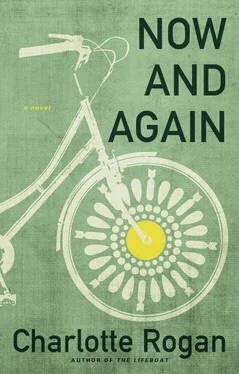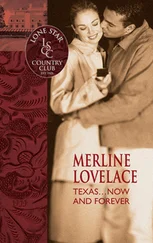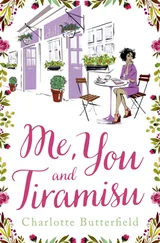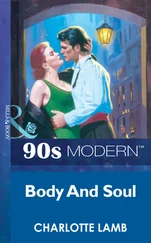The file also contained the notes from the arrest. Tomás had been apprehended miles away from the scene of the crime. When the police approached, he had started to run. Two officers had chased him down and arrested him. At the time, the only thing they had charged him with was resisting an arrest that, as far as Maggie could make out, shouldn’t have happened in the first place.
Maggie glanced up at the two high windows as if they would shed light on the mystery. Then she took the file upstairs, and when Valerie went to lunch, she copied it. But she didn’t know how to get it out of the prison past Hugo and the army of guards who were entitled to pat her down or feel her up, which, according to the other female employees, often amounted to the same thing. For two days, she kept the papers in her desk, but they weren’t safe there either. The duties of the secretaries were apt to change unexpectedly, and on any given day, one or the other of them might sit at someone else’s desk. Nothing in the prison was private. It made her miss the days at the munitions plant, where she had her own locker and where one of the desk drawers came with a tiny key. While she pondered how to remove her new evidence from the prison, she made a file for a fake prisoner, whom she named Max Gray, filled it with the copies she had made, and slipped it into the “G” section in the basement room. Hide in plain sight, she told herself.
Maggie left Tomás’s name out of it when she said to Valerie, “I learned about a prisoner who is only here because he ran from the police. Does that seem right to you or not?”
“Why was he running?” asked Valerie in her weary here-we-go-again tone.
“He had every reason to run!” cried Maggie. “Look what happened to him!”
“Good lord,” said Valerie. “It makes no sense to say he was running from a thing that hadn’t even happened yet!”
“But he knew it would happen.”
“Now he’s not only innocent, but he’s some kind of a genius. Good lord, Maggie. I’m beginning to see what Misty was talking about.”
Soon after Maggie started working at the prison, Valerie had said, “You have quite a reputation. Misty Mills told me all about you.” At the time, Maggie had made a self-deprecating gesture and said, “Whatever it was, I hope it was good.” But now competing thoughts about what Misty might have said about her wrestled in her brain. Too much time had passed for her to bring it up again and ask Valerie for specifics. Besides, Maggie didn’t want to let on that there was anything to tell, which could prompt Valerie to talk to Misty and Misty to put two and two together if Winslow had let on that he was missing a document.
Instead, she approached Misty at church the next Sunday. “What did you tell Valerie about me?” she asked.
“I told her to keep an eye on you.”
Again, there were multiple interpretations. Was it a friendly gesture, or was something a little more sinister being implied?
True was standing nearby and must have sensed her hesitation, for she came over with her plate of donuts and linked her arm through Maggie’s. “Everybody knows you have a good heart,” she said.
“No doubt I do,” said Maggie. “But what does having a good heart really mean? Having a good heart is meaningless if you don’t do good things.”
“You’re kind, for one thing, and you don’t do anything bad, do you?”
“Thank you, True, but everyone does bad things. I always thought the key was for the good to outweigh the bad, but now I wonder if that’s even possible. And just try putting those people with good hearts in a difficult situation and see what they do then. What if it’s the circumstances and not the people that are bad?”
“I don’t see how circumstances can be bad,” said True. “That’s like blaming a road for having potholes.”
“But people could fix the potholes,” said Maggie. “Instead of worrying so much about whether people are good or bad, maybe we should pay more attention to changing their circumstances.”
“I thought you were against changing circumstances,” said Misty. “Don’t go to war against a dictator. Don’t try to free an oppressed people. Don’t make an omelet because you might break a few eggs.”
“Maggie doesn’t believe in eggs,” said True with a giggle. “Not if it means upsetting the chickens.”
“I’m just saying that there are plenty of people to free right here — people who have done less wrong in their lives than I have,” said Maggie a little recklessly, given the documents hidden in her drawer.
“Just so you know, this is what I warned Valerie about,” said Misty. “This is a perfect example right here.”
3.7 Lyle
Lyle started taking an interest in what other people had to say on various subjects, and without Maggie with him night and day, it was as if he had an open socket that was now free for other connections. Sometimes Jimmy sat in Maggie’s old chair in the lunchroom, and for the first time since high school, Lyle was reminded of the term “best friend.” He made ball-and-chain jokes with Jimmy, and just talking about how a wife tied you down made Lyle feel kind of liberated.
In early March, Lyle towed Jimmy’s car to the shop when it broke down. A few weeks later, Jimmy used his chain saw to clear a branch that had fallen on the shed during a winter ice storm, after which Jimmy asked Lyle and Will to go fishing with him up at the lake the next day.
“They can’t,” said Maggie. “Will is taking the SAT next weekend, so he needs to study.”
“What am I going to learn in a week?” asked Will.
“That’s like saying it’s no use saving a penny,” said Maggie. “Every little bit helps.”
“Your mother’s right,” said Jimmy. “Love does much, but money does more.”
“My point was about education, not about money or love,” said Maggie.
“Anyway,” said Will. “I know all of the test-taking techniques. Mr. Quick has been drilling them into us for weeks.”
“Say, I’ve got an idea,” said Jimmy. “Will can bring his book in the car. I’ll quiz him on the way up.”
The next morning Jimmy tooted the horn when it was still dark. While Will settled into the back seat, Lyle stowed a cooler full of sandwiches and drinks in the trunk, along with the SAT review book. As they drove into the rising light, Jimmy switched on the radio looking for the top-of-the-hour news and weather. “They do the weather last,” he said.
Just over half of the thirty thousand additional troops being sent as part of the so-called surge have arrived in Iraq, yet political pressure at home calls for quick results and a firm pullout date, said the radio announcer.
“Firm pullout,” said Jimmy. “That’s the problem right there.” Then he called back to Will. “‘Oxymoron.’ There’s an SAT word for you.”
Poor construction has resulted in generators that don’t work, overflowing sewage systems, and unreliable distribution of food and fuel, said the radio announcer.
“We’re supposed to build their country for them?” asked Lyle.
“If you break it, you own it,” said Jimmy. “I guess that’s the thinking there.”
After the weather, Jimmy turned the radio off and said, “Okay, Will, now for the quiz like I promised your mom.”
“I might have put the review book in the trunk,” said Lyle. “If you pull over, I can get it out.” Outside the car window, the landscape heaved and buckled. Scrubby pine trees clung to the rocks and a stand of post oaks pushed out their soft new leaves.
“It’s not that kind of quiz,” said Jimmy.
“What kind of quiz is it?” asked Will.
“Multiple choice,” said Jimmy. “Here’s the first question. If you’re interested in a girl, do you (a) tell her how much you like her; (b) wait for her to make the first move; (c) invite her on a romantic date; or (d) ask out someone else?”
Читать дальше












